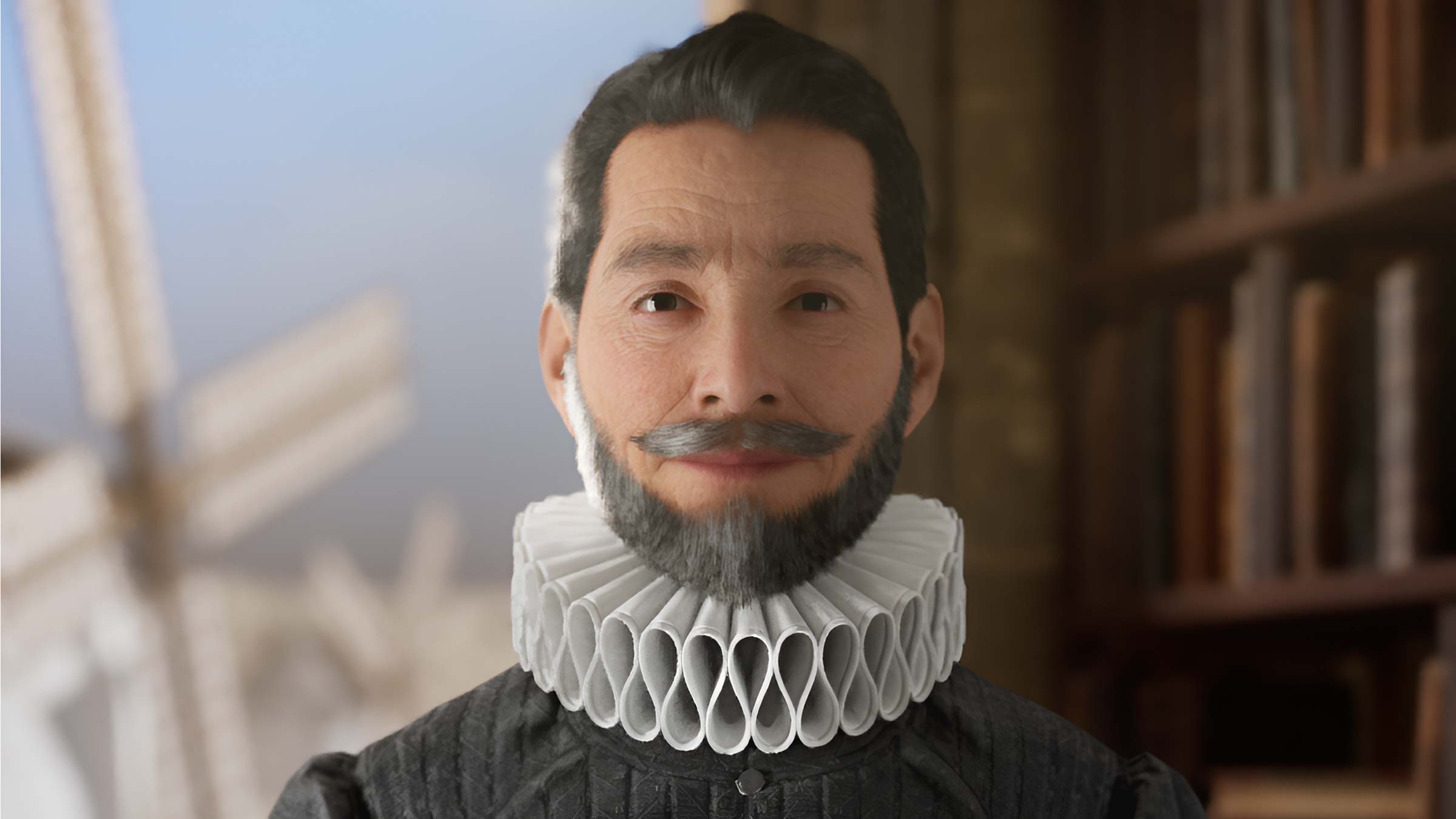Hotels of the future: hotel technology trends
The hotel industry is in the midst of a digital transformation. From large hotel chains to rural and family-run hotels, they are all in the midst of a digital transformation. incorporating technology in optimizing internal operations and guest experience. Adapting to the needs and expectations of increasingly digitalized travelers.
But, how do we plan the hotels of the future? In this article we want to explore this concept and the technological trends that accompany it. Artificial Intelligence, automation, immersive experiences... All these technologies are part of today's hotel industry, and are the key pieces to build the future of the industry.
We will now take a closer look at these technologies and how companies in the tourism and hospitality sector are by integrating them into their activities.
New technology applications for smart hotels
The smart hotels are establishments that integrate advanced technologies to optimize the guest experience. One of the main applications is automation, with systems such as check-in and check-out, domotic room management or virtual assistants that personalize the guest experience by attending to all their needs, requests and queries.
These tools not only streamline processes, but also increase the convenience, reduce waiting times and offer a seamless and personalized experience.. Where the user is the one who takes control of his stay in the hotel.
If you want to know more about the development of virtual assistants in hotel servicesyou can visit our website Artificial Intelligence in hotels
5 technology trends in the hotel industry
From tools that automate processes to customer experience innovations that enrich and open up new opportunities for customers to enjoy their hotel stay, these technology trends are leading the way in the hotel industry. innovation in the hotel industry.
Virtual stewards
Room service is innovating with the arrival of the virtual butlers equipped with Artificial Intelligence. With them, each guest has their own assistant to help them manage reservations, place room orders and even make recommendations on what places to visit, what activities to book and answer any questions about the hotel's operations.
Everything in a personalized way for each user and in their own language. Virtual assistants focused on the hotel and tourism sector such as Cervantes IAthe virtual avatar of Miguel de Cervantes who acts as a tour guide for his beloved Castilla-La Mancha. Or Marta, the case of digital concierge presented by the Hotel Torre del Marqués.
2. Virtual and Augmented Reality immersive experiences.
Augmented Reality and Virtual Reality also have an impact on hotel management. With these technologies, it is possible to develop the trend try before buying. In tourism, this trend is represented in living immersive experiences that recreate what is going to be experienced on the trip prior to booking.
Connecting on an emotional and experiential levelbeyond just showing photographs and videos. A fact that benefits hotels by being able to show their catalog of activities to hire in a more individualized and personalized way for customers, giving each one time to explore at their own pace.
You may be interested in → The influence of Augmented Reality in hotels
3. Virtual recreations of the facilities
Virtual recreations or virtual twins of the hotel facilities allow guests to have a greater control and knowledge of the hotel's operations and activities. Improving access to information and taking full advantage of new technologies to personalize and enhance the entire customer experience.
Being able to organize virtual tours accessible from any devicehelping the guest to visualize their stay, make better informed decisions and improve confidence in the booking process. In addition, as with Exclusiversethe virtual headquarters of the travelers' club Exclusive Traveler ClubIn these 3D recreations, it is possible to organize meetings, offer exclusive benefits... promoting the sntimiento de pertenencia y la fidelización con la marca.
4. Virtual assistants and voice technology
Voice technology and virtual assistants are revolutionizing the hospitality experience by offering automatic translation and multi-language support. These solutions enable hotels to communicate effectively with guests of different nationalities, eliminating language barriers.
In addition, its ability to provide real-time support contributes to a more accessible and inclusive tourism, adapting to the needs of each traveler and improving the quality of service. As the iurban robot Cicerone, a virtual assistant capable of managing a travel agency in 95 languages.
5. Interactive technological installations
The use of technology in the hospitality industry not only has an impact on the online world of the sector, it can also transforming the physical hotel itself through interactive facilities and the commitment to phygital experiences. Touch screens, holograms, interactive showcases or gamified experiences in the lobby and common areas... all kinds of innovations that foster engagement, connection and entertainment for guests.
Interactive technology installations such as those designed for the renovated headquarters of Ibercaja in the Xplora Spacewith its immersive showcase.
Or, at the tourism level, the marketing action of the Frozen Emotionwhere users could travel to a suspension bridge high in the Pyrenees and ski down with their new virtual ski pass. A real immersive Virtual Reality experience that will leave you frozen.
Benefits of technology in the hotels of the future
The technology of the hotels of the future impacts both internally and externally. Both internally and externally. employee support such as guest experience, marketing and sales.
In this section, we will analyze the main advantages and benefits offered by technology in the hotel sector:
Maximum customization and personalization
Through advanced tools such as the Artificial Intelligence and Big Datahotels can customize every aspect of their guests' stay, anticipating their guests' needs.
The systems can record the guest preferences, analyze possible needs based on their profile and use this information to offer an experience perfectly adapted to them.
The AI can also provide recommendations to users and predict what they might need, based on their previous behavior patterns. In addition, the accessibility for guests is very simple: they can access the hotel implementations of the future from their mobile devices in web browsers, thanks to, for example, WebApps developed by these hotels.
Reduction of waiting times
Thanks to technology, the hotels of the future will be able to automate different processes both within the internal management of the hotel and in the attention and interaction with guests.
For example, the implementation of generative Artificial Intelligence and other innovations in automation automatic registration systems, digital check-in and check-out, y virtual assistantsIn addition, processes that traditionally took unnecessary time are automated, improving operational efficiency and the guest experience.
Impact of technology on the guest experience
Undoubtedly, the key point of any technological hotel is the guest experience. From the moment they discover the hotel and book it, to the actual stay and the final satisfaction they have. Technology allows transforming each of these parts of the customer journeyThe experience is personalized in a way never seen before in the hotel industry.
- Personalized experience and stays with maximum comfort. The use of this cutting-edge technology makes it possible to offer guests a fully personalized experience. From the choice of the ideal pillow to the creation of travel itineraries tailored to their tastes. In this way, the hotels of the future can offer exclusive services that enhance guest comfort and satisfaction.
- Improved interaction with virtual assistants. Virtual assistants will be an integral part of the experience in the smart hotels. These assistants will be available 24 hours a day to answer questions, make requests or provide recommendations, ensuring a smoother and more pleasant stay.
- Easy access to services through cell phones. Mobile apps and WebApps are making it easier to access all hotel services. From opening the room door with the phone to making reservations for activities or ordering room service with a single click, these technologies offer not only convenience, but also full control of the experience. This allows guests to enjoy their stay in a more autonomous, faster and more personalized way.
How to implement technology in hotels
Throughout this post, we have explored various innovative technologies, tools and solutions for hotels. The key challenge is to define a strategic and action plan to implement them effectively in each hotel business.
It is essential to identify the technologies that are best aligned with the value proposition of the hotel, the profile of its guests and specific operational needs. Whether to strengthen the brand, improve internal efficiency or offer more personalized customer service, solutions must respond to clear objectives.
Next, we would like to discuss a success story from use of Artificial Intelligence in the hotel sector. In an environment where personalization and constant availability have become key factors for luxury hotels, the Hotel Torre del Marqués decided to take its commitment to innovation one step further. This led to the creation of a project to integrate a virtual assistant with a local soul capable of accompanying guests at all times.
Marta Torre del Marqués
The Torre del Marqués Hotel, in the heart of “Aragonese Tuscany,” has incorporated Marta, a Intelligent multilingual avatar that acts as a digital concierge available 24/7. This virtual assistant provides personalized information about services, gastronomy, wellness, and activities in Matarraña, accompanying guests throughout their stay without compromising the hotel's essence of exclusivity.
Thanks to its implementation, the five-star complex has improved operational efficiency, strengthened customer service, and increased visitor satisfaction, positioning itself as a benchmark in rural tourism innovation. The project was made possible with the support of the Secretary of State for Tourism through the Segittur grant.
The hotels of the future are already a reality. From Imascono we are supporting tourism and hotel companies in digital transformation of your facilities and services. Through our solutions for technology in tourism to revolutionize the guest experience.
Would you like to learn more about our work? Contact with us and discover how we can transform your ideas into unique experiences. With a solid track record in the tourism sector and a wide portfolio of innovative projects, we are ready to take your brand to the next level, let us show you our full potential!




